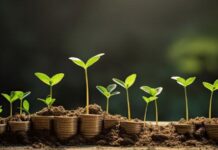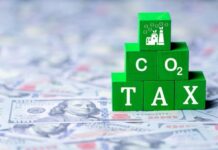Last weekend, marked the 16th birthday of BusinessGreen. I’d managed to completely forget it was coming up, and failed utterly to organise a party (although I am sure we’ll manage a toast at the upcoming Net Zero Festival), but it remains a cause for celebration nevertheless.
Sixteen years is a long time, especially for a brand that launched on the eve of a global financial crisis, has had to navigate a media landscape in constant flux, and has operated against an economic backdrop of sustained, even unprecedented, mediocrity. But throughout it all we’ve made steady progress, gradually expanding our reader and client base, building our events portfolio, and extending our influence in support of the ongoing mission to inform, connect, and inspire the green economy.
We now routinely reach hundreds of thousands of people a month, providing news, analysis, and insight on the fast-evolving global green industrial revolution. We have an expanding membership base that has allowed us to invest in more in-depth content, including our BusinessGreen Intelligence platform. And many thousands of people have attended our Net Zero Festival and UK Green Business Awards over the years. We’ve even won the occasional award ourselves. There is a lot for the team to be rightly proud of.
The even better news is that this success is a function less of our talents and more the continued expansion of the green economy.
Back when BusinessGreen launched we wrote about electric vehicles that were glorified golf buggies and distant dreams that renewables might one day account for 20 per cent of the grid. Now electric vehicles are transforming the global auto market and clean power dominates the energy market. Climate change and the net zero transition are now a mainstream concern. The idea that these trends would become the defining issue of the age has gone from environmentalist hyperbole to received wisdom in the corridors of power.
Every day on BusinessGreen we now report on stories that would have been inconceivable 16 years ago. The pace of technological development and scale of green investment having far outstripped expectations. There are lots of reasons to be optimistic about both the near and the long term future. Emissions are close to peaking, and the renewables, battery, and EV revolutions mean there are very good reasons to think a rapid reduction in energy-related emissions is imminent. Credible solutions are even starting to emerge to tackle the more stubborn decarbonisation challenges presented by the industrial, aviation, shipping, and agricultural sectors.
And yet, the teenage years are always cut with more than a degree of frustration and not a little existential dread. Because for all the progress of the past 16 years, far too many political and economic trends remain resolutely unchanged. Global emissions are still rising, the worlds of business and politics are still defined by chronic and self-defeating short termism, proven clean technologies are still undermined by vested interests and market failures.
If anything, the geopolitical landscape, the miasma of online misinformation, and the scale of the climate threat are much, much worse than they were back in 2007. The violent horrors of recent days and months – the combination of medieval barbarism and the reckless escalation of petrostate power games – fuel the sense of a world order that is more insecure and volatile than at any point in my lifetime. Climate impacts threaten to make this volatility a terrifying new normal.
And yet, the hope has to remain that the crises made by humans can be resolved by humans.
One of the reasons we launched BusinessGreen was to try and fill what was a gap in the market. To tell a story that was not being told nearly widely enough. A story about how a form of responsible capitalism, technological innovation, and political leadership could overcome the immense challenges humanity faces in the 21st century. How it is possible to build an economy that is cleaner, safer, happier, and healthier for everyone. Thankfully, more and more people are now telling that story. And sixteen years on, we remain committed to continuing to do so.










